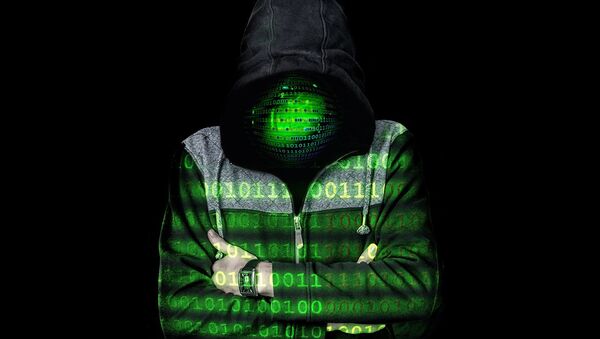David Maimon, an Associate Professor in Criminology at Georgia State University explains how we can protect ourselves from online fraudsters.
Sputnik: Could you tell me a bit more about these darknet markets and how consumers can identify them?
David Maimon: So it's a great question, darknet markets are usually hosted on darknet environments and those environments require internet users with designated browsers and technology in order to access them.
The most popular browser out there is Tor, the onion router but there are other platforms such as ITP and Freenet that essentially allow users to connect to the dark web. Darknet markets are hosted on the dark web and you know, they essentially look like any Amazon or eBay or any e-shopping website that folks go to when they're trying to purchase any type of commodity.
In addition to those darknet markets, you also have the encrypted channels and I think that we see more and more vendors moving to those encrypted channels. So when we're talking about encrypted channels, we are essentially talking about applications like WhatsApp and telegram and signal and essentially, on those channels, vendors feel comfortable just simply advertising their commodity, selling their commodities, and communicating safely with a consumer. So it's important to understand that consumers do not merely stumble upon those markets, both on the darknet as well as on encrypted channels, most often in order to be on those platforms folks need to look for them.
Sputnik: What are the most common products being sold on the darknet markets?
David Maimon: Sure at the beginning of the pandemic we've seen mostly protective gear being sold. So we've seen face masks, hand sanitizers, you know, gowns but recently, we started seeing more and more medications like chloroquine being sold over darknet markets. Again, we see them on those platforms and we're trying to gauge the volume of sale.
It's very complicated because, at the end of the day, we are not 100 percent sure, with respect to who is buying, what, from whom, but we make use of the customer reviews, the folks leave behind after purchasing commodities. Based on that, we estimate we sort of, you know, think that what folks are looking for right now in darknet market platforms are those medications.
I think that the most sought after as well as you know, on high demand commodity are essentially personal identifiers of individuals, which, once you purchase could be used to defraud the government for unemployment benefits or someone's I don't know if you guys have that in Scotland, but here in the United States, the government allocated a lot of resources to try and help businesses. So you know, in order to get those funds and those loans you need to apply for them. And so what the bad guys are doing is essentially they are using their personal identifiers to apply for those loans, and then they get the money, while the individuals whose information was taken are not even aware.
Sputnik: How are online fraudsters caught and how can we protect ourselves online?
David Maimon: Generally speaking, I have to say from the get-go, it's very difficult to track online fraudsters and apprehend them. Of course, when enforcement agencies are doing their best, but getting the, you know, resources that they have, they tend to trail behind those fraudsters. You know, law enforcement agencies usually prefer to go after big fish, large targets, and they usually prefer to go after the individuals who operate those markets. And those are not really the online fraudsters that, you know, we deal with on a daily basis, sort of speaking. But still, if law enforcement agencies are trying to get those fraudsters and they have the resources to do that, they usually will put together a sting operation. And they will try to communicate with those online fraudsters on different platforms that maybe they will make a purchase in order to really try and understand the modus operandi behind the fraudsters' operation and they will try to get as close as possible with the fraudsters in order to capture them. Again, it doesn't happen a whole lot because law enforcement has a lot on their hands and, you know, they can’t truly try and capture every online fraudster out there. But, you know, they're doing their best to sort of address this issue.



